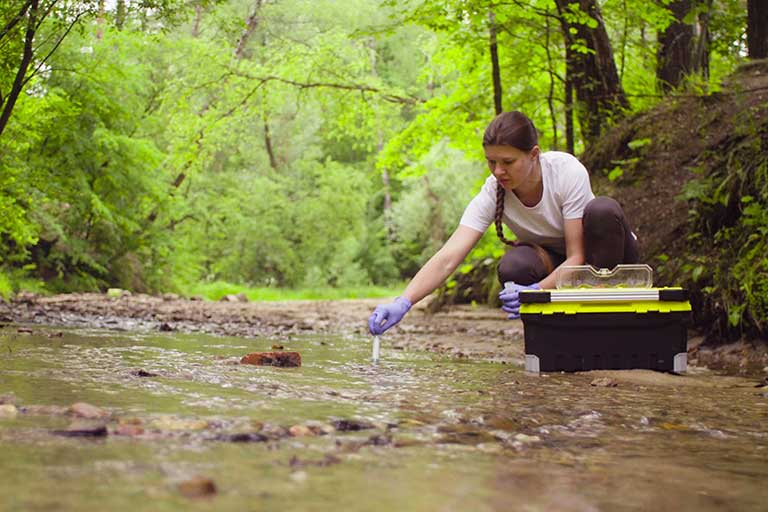The environmental science undergraduate certificate program prepares science majors or graduates for employment in the environmental field. It refines skills such as:
- Field collecting
- Water sampling
- Soil sampling
- Reporting and scientific writing
- Regulatory policies
- Chemical and analytical methods
- Research methods
You must be in a degree program in the natural sciences, including biology, chemistry, geoscience, or physics, OR have a four year degree in one of those areas. Once admitted, you should address any prerequisites (listed below). Some of these can be taken simultaneously with the required courses.
For further information or to apply, contact the School of Natural Sciences at (812) 941-2284.


